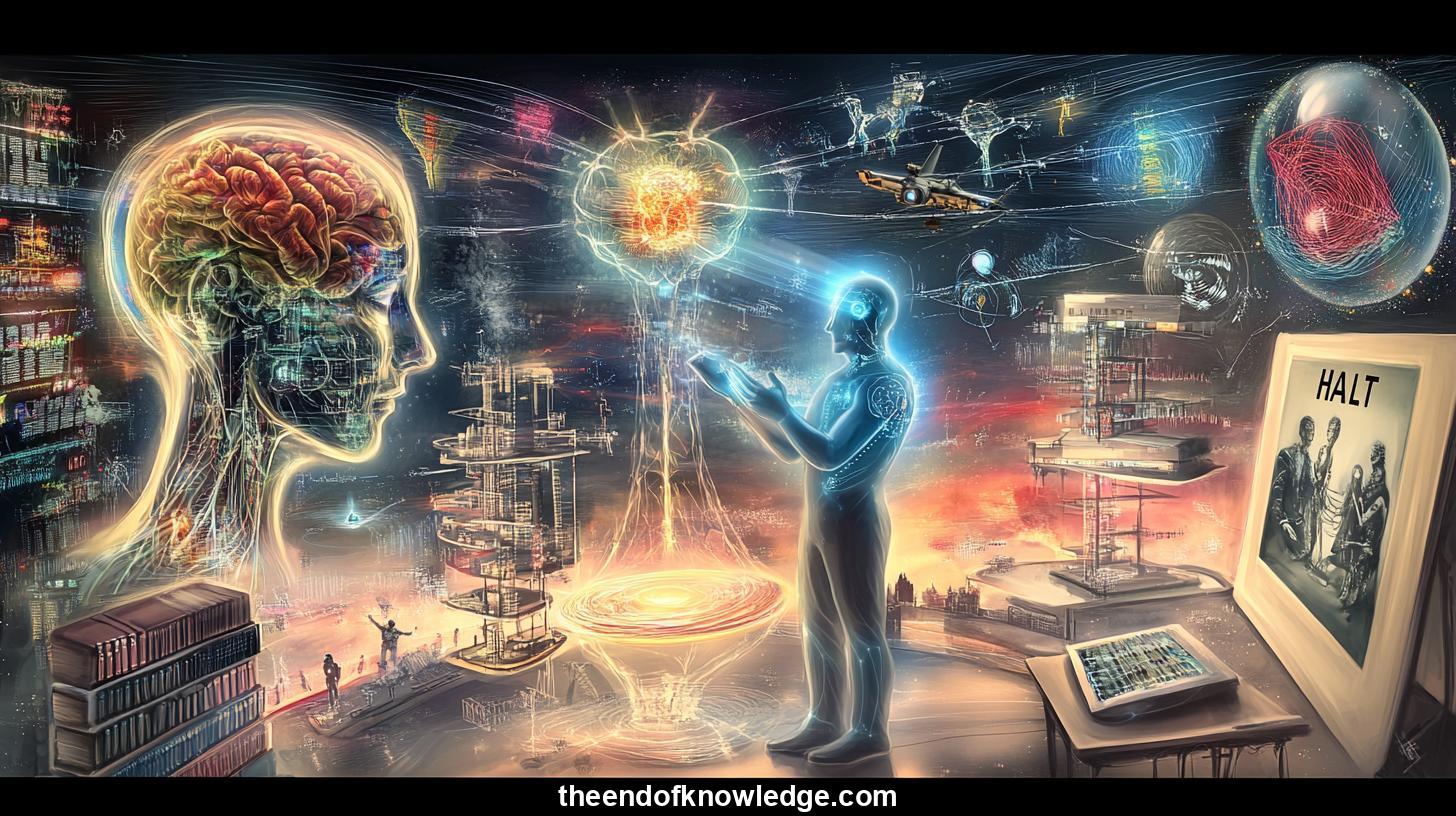 >
>
Concept Graph, Resume & KeyIdeas using DeepSeek R1 :
Resume:
The discussion revolves around the intersection of artificial intelligence (AI), human cognition, and the nature of reality, with a particular focus on the biological and philosophical underpinnings of these topics. It begins with an exploration of the human brain's ability to process information, emphasizing the complexity of biological processes such as memory consolidation during sleep and the role of emotions in shaping human experiences. The speaker highlights the limitations of human cognition compared to the efficiency of AI systems, which can process vast amounts of data without the constraints of biological or emotional barriers.30 Key Ideas:
1.- The human brain processes information through complex biological mechanisms, including memory consolidation during sleep.
2.- Artificial intelligence systems lack biological constraints, enabling efficient data processing without emotional interference.
3.- The ethical implications of AI development include potential misuse in weaponry, surveillance, and manipulation.
4.- Responsibility in AI creation is crucial, as it holds the power to shape the future of humanity.
5.- Human cognition is limited by biological and emotional factors, unlike AI's computational efficiency.
6.- The future may involve human-AI collaboration, where AI handles data processing and humans focus on creativity.
7.- Empathy and creativity are uniquely human traits that AI systems cannot fully replicate.
8.- The nature of reality is explored through philosophical discussions and science fiction analogies.
9.- AI systems lack consciousness and emotional depth, distinguishing them from human experiences.
10.- Memory and decision-making are potential areas where AI could augment human capabilities.
11.- The ethical use of AI requires balancing innovation with societal and environmental responsibility.
12.- Human emotions play a critical role in shaping experiences, unlike AI's logical processing.
13.- The potential for AI to simulate reality raises questions about consciousness and existence.
14.- Biological processes like dreaming are essential for learning and cognitive function in humans.
15.- AI systems can analyze brain activity to decode thoughts and visualize dreams.
16.- The integration of AI into daily life may diminish human reliance on biological memory.
17.- Creativity and intuition are human capacities that AI cannot fully emulate.
18.- The development of AI raises ethical questions about privacy and data security.
19.- Human-AI collaboration could lead to advancements in problem-solving and innovation.
20.- The future of AI depends on responsible development and ethical guidelines.
21.- AI systems can process vast amounts of data, surpassing human cognitive limitations.
22.- The brain's ability to create models of reality is unique compared to AI's computational methods.
23.- Emotional experiences are central to human consciousness but absent in AI systems.
24.- The potential for AI to improve healthcare and education is significant.
25.- Ethical considerations must guide the application of AI in sensitive areas like warfare.
26.- Human creativity is a unique trait that AI systems cannot fully replicate.
27.- The intersection of biology and technology challenges traditional notions of consciousness.
28.- AI systems can assist humans in tasks requiring precision and logical reasoning.
29.- The ethical use of AI requires transparency and accountability in its development.
30.- Human-AI collaboration could redefine the boundaries of creativity and problem-solving.
Interviews by Plácido Doménech Espí & Guests - Knowledge Vault built byDavid Vivancos 2025